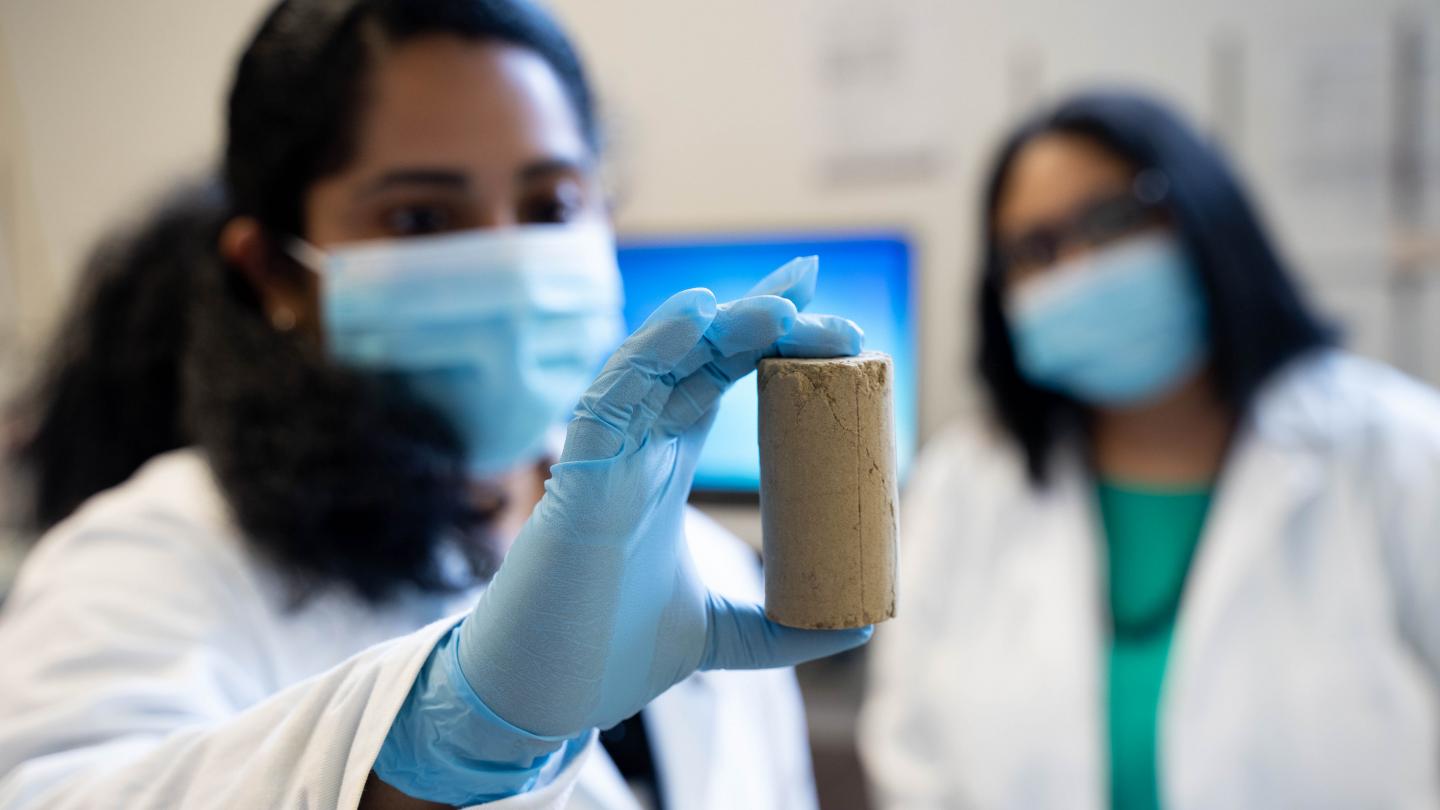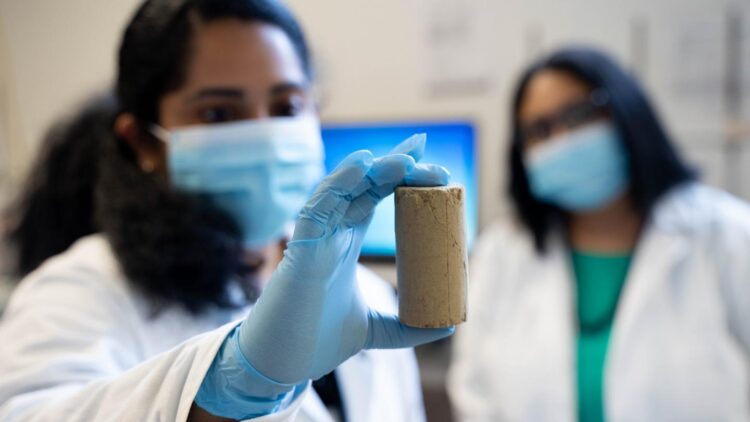Pulp mill waste hits the road instead of the landfill

Credit: UBCO
Waste materials from the pulp and paper industry have long been seen as possible fillers for building products like cement, but for years these materials have ended up in the landfill. Now, researchers at UBC Okanagan are developing guidelines to use this waste for road construction in an environmentally friendly manner.
The researchers were particularly interested in wood-based pulp mill fly ash (PFA), which is a non-hazardous commercial waste product. The North American pulp and paper industry generates more than one million tons of ash annually by burning wood in power boiler units for energy production. When sent to a landfill, the producer shoulders the cost of about $25 to $50 per ton, so mills are looking for alternative usages of these by-products.
“Anytime we can redirect waste to a sustainable alternative, we are heading in the right direction,” says Dr. Sumi Siddiqua, associate professor at UBC Okanagan’s School of Engineering. Dr. Siddiqua leads the Advanced Geomaterials Testing Lab, where researchers uncover different reuse options for industry byproducts.
This new research co-published with Postdoctoral Research Fellow Dr. Chinchu Cherian investigated using untreated PFA as an economically sustainable low-carbon binder for road construction.
“The porous nature of PFA acts like a gateway for the adhesiveness of the other materials in the cement that enables the overall structure to be stronger and more resilient than materials not made with PFA,” says Dr. Cherian. “Through our material characterization and toxicology analysis, we found further environmental and societal benefits that producing this new material was more energy efficient and produced low-carbon emissions.”
But Dr. Siddiqua notes the construction industry is concerned that toxins used in pulp and paper mills may leach out of the reused material.
“Our findings indicate because the cementation bonds developed through the use of the untreated PFA are so strong, little to no release of chemicals is apparent. Therefore, it can be considered as a safe raw material for environmental applications.”
While Dr. Cherian explains that further research is required to establish guidelines for PFA modifications to ensure its consistency, she is confident their research is on the right track.
“Overall, our research affirms the use of recycled wood ash from pulp mills for construction activities such as making sustainable roads and cost-neutral buildings can derive enormous environmental and economic benefits,” she says. “And not just benefits for the industry, but to society as a whole by reducing waste going to landfills and reducing our ecological footprints.”
In the meantime, while cement producers can start incorporating PFA into their products, Dr. Cherian says they should be continually testing and evaluating the PFA properties to ensure overall quality.
###
The research was published in the Journal of Cleaner Production with support from the Bio-Alliance Initiative — an organization representing BC pulp and paper mills — and Mitacs.
Media Contact
Wellborn, Patty
[email protected]
Original Source
https:/
Related Journal Article
http://dx.





